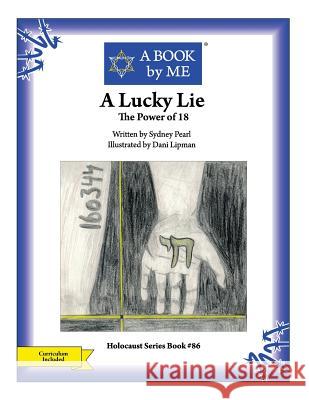A Lucky Lie: The Power of 18 » książka
A Lucky Lie: The Power of 18
ISBN-13: 9781514292242 / Angielski / Miękka / 2015 / 26 str.
David Wolnerman was born in 1927 in Modrzejow, Poland. Hannah, David's mother, gave birth to him on the kitchen floor of a two room home. His father had a humble job selling used burlap bags in the village. Abraham, David's brother, and his sisters, Bluma and Gertrude, enjoyed playing soccer with a ball made from their old socks. They were happy. There were both Jews and non-Jews living there and as the war broke out, life got more and more difficult for the Jews. Anti-Semitism was a problem and as Nazi soldiers came often, violence increased. Soldiers came looking for Jewish works so at age thirteen, David made a decision to go with them. "They told me if I came to work, my family would be spared." To save his family, David went with them. He was taken to a camp called Auschwitz, just five kilometers from the village. Upon arrival, he saw a man separating the people into two lines, one to the left and one to the right. "I saw the people that went left. They were older, crippled, or with young children. I just knew that if I went left it wasn't good." David walked up to the man who was making the decisions. That man was Dr. Joseph Mengele. He asked, "Wie alt bist du?" (How old are you?) David told him, "I am eighteen." What allowed David to lie about his age at that moment he doesn't know. "God told me something. I went right. If not, I would have been sent to my death," he recalls. "There was nothing in the camps," David recalls. "No water, no food, no washing, no medicine, nothing." He worked hard labor jobs. From Auschwitz he went to Birkenau. Later, as the Allies came closer, he was moved to Theresienstadt, and then to Dachau, and others. He worked in the crematoriums and the gas chambers. He loaded and unloaded cement from trucks. It was backbreaking work and, as the war raged on, conditions got worse. "We didn't think about anything in the camp. We had minds like a cow. We only thought about bread. You got two slices of black bread each day. Bread was life," David recalls. As time passed, David became weak and was infested with lice. The Jews in the camps suffered from typhus, a disease caused by poor, unsanitary conditions. Typhus is not transmitted from person to person like the flu. Lice breed typhus. If it goes untreated, you will die. David contracted typhus and was put in a makeshift infirmary. There was no food, no water, and no medicine. The chances of survival were very slim but David recovered. "I got better. It had to be God. Without faith I would not have survived." On Sunday, April 29, 1945, just one week before the end of the war, David was liberated by American soldiers. After liberation the Jewish prisoners were moved to Displaced Persons (DP) camps. The survivors were suffering from severe malnutrition and illness. David was excited and very impressed when General Dwight Eisenhower, visited the DP camp on the Jewish holiday called Yom Kipper. "He was a good man. He understood because he was there to see us," David remembers. After the war, David discovered the fate of his family by talking to surviving neighbors. A few days after he went with the soldiers, they came back for the remaining Jews in the village. His mother was sent to Auschwitz and died in the gas chambers. David's brother Abraham also died in the concentration camp. His sister, Gertrude, died in Auschwitz of pneumonia in the final days before liberation. David's youngest sister, Bluma, survived and eventually immigrated to America and settled in Gary, Indiana. David married a fellow survivor named Jennie and they immigrated to America too. They owned and ran a grocery store in Gary and later moved to Des Moines, Iowa to be closer to their sons who had come to Iowa for college. He shares his story with children and various groups in the community. "You must forgive, but you should never forget. For me, it is over. That is why I am going to talk to people. Never forget."
Zawartość książki może nie spełniać oczekiwań – reklamacje nie obejmują treści, która mogła nie być redakcyjnie ani merytorycznie opracowana.











